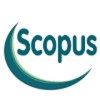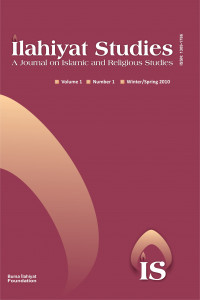Short Report
Book Review
Research Article
Aim & Scope
Ilahiyat Studies is an international, peer-reviewed multidisciplinary journal dedicated to publishing scholarly articles on all aspects of Islam and the Muslim peoples and on religious studies. Available in print and online and published in English twice a year, the journal aims to become one of the leading platforms in the world for new findings and discussions of all fields of Islamic and religious studies. The language of Ilahiyat Studies is English.
Ilahiyat Studies accepts academic articles from all over the world in all disciplines in the three divisions of theology (Basic Islamic Studies, Philosophy and Religious Studies, and History of Islam and Islamic Arts).
Author Guidelines
Text and references in the Journal of Ilaihiyat Studies should conform to the format specified in the Ilahiyat Studies Style Sheet. The template is available at the link below:
https://drive.google.com/file/d/1mrGnhq26SYCwzrghBDlyFg_jsPdeSwOE/view?usp=sharing
For Mendeley or Zotero users, the appropriate csl file for our journal can be accessed from the link below:
https://www.zotero.org/styles/ilahiyat-studies
Manuscripts should be typed double-spaced on the A4. Tables, graphs, and figures should be on separate pages. All submissions should be in MS-Word (97-2003, 2007 or 2010) format. Leave margins of at least 4 cm on top, bottom, and sides. References should be below the pages in the following style. For detailed information see Ilahiyat Studies Style Sheet
Ethical Principles and Publication Policy
The publication process at Ilahiyat Studies (Journal for the Study on Judaism Christianity, and the West in Turkey) is the basis of the improvement and dissemination of information objectively and respectfully. Therefore, the procedures in this process improve the quality of the studies. Peer-reviewed studies are the ones that support and materialize the scientific method. At this point, it is of utmost importance that all parties included in the publication process (authors, readers, and researchers, publisher, reviewers, and editors) comply with the standards of ethical considerations. Ilahiyat Studies expects all parties to hold the following ethical responsibilities.
The following ethical duties and responsibilities are written in light of the guidelines and policies made by the Committee on Publication Ethics (COPE) (http://publicationethics.org).
The publication of an article in a peer-reviewed journal is an essential building block in the development of a coherent and respected network of knowledge. It is a direct reflection of the quality of the work of the authors and the institutions that support them. Peer-reviewed articles support and embody the scientific method. It is therefore important to agree upon standards of expected ethical behavior for all parties involved in the act of publishing: the author, the journal editor, the peer reviewer, and the publisher.
1. Publication and authorship:
List of references, financial support;
No plagiarism, no fraudulent data;
Forbidden to publish the same research in more than one journal.
2. Author’s responsibilities:
Authors obliged to participate in the peer-review process;
All authors have significantly contributed to the research;
All data in the article must be declared true and authentic;
All authors are obliged to provide retractions or corrections of mistakes.
3. Peer review/responsibility for the reviewers:
Judgments should be objective;
Reviewers should have no conflict of interest with respect to the research, the authors and/or the research funders;
Reviewers should point out relevant published work which is not yet cited;
Reviewed articles should be treated confidentially.
4. Editorial responsibilities:
Editors have complete responsibility and authority to reject/accept an article;
Editors should have no conflict of interest with respect to articles they reject/accept;
Only accept a paper when reasonably certain;
When errors are found, promote the publication of correction or retraction;
Preserve the anonymity of reviewers.
No plagiarism, no fraudulent data.
5. Publishing ethics issues
Monitoring/safeguarding publishing ethics by editorial board;
Guidelines for retracting articles;
Maintain the integrity of the academic record;
Preclude business needs from compromising intellectual and ethical standards;
Always be willing to publish corrections, clarifications, retractions, and apologies when needed.
Duties of the Publisher
Ilahiyat Studies journal is committed to ensuring that commercial revenue has no impact or influence on editorial decisions. In addition, Ilahiyat Studies will assist in communications with other journals and/or publishers where this is useful to editors. Finally, we are working closely with other publishers and industry associations to set standards for best practices on ethical matters, errors, and retractions–and are prepared to provide specialized legal review and counsel if necessary.
Plagiarism Detection
Ilahiyat Studies journal uses a double-blind review fulfilled by at least two reviewers. In addition, all articles are checked by means of a program in order to confirm they are not published before and avoid plagiarism.
The peer-review process is at the heart of the success of scientific publishing. As part of our commitment to the protection and enhancement of the peer review process, Ilahiyat Studies has an obligation to assist the scientific community in all aspects of publishing ethics, especially in cases of (suspected) duplicate submission or plagiarism.
When a reader discovers a significant error or inaccuracy in a paper published in Ilahiyat Studies have any other complaint about editorial content (plagiarism, duplicate papers, etc.), he/she should make a complaint by e-mail to journal@ilahiyatstudies.org
We welcome complaints as they provide an opportunity for improvement, and we aim to respond quickly and constructively.
See, Publishing Ethics Resource Kit for Editors (https://www.elsevier.com/editors/perk)
See, Committee on Publication Ethics (COPE) (https://publicationethics.org/)
Price Policy
Ilahiyat Studies does not charge any article submission, processing charges, and printing charges from the authors.
Indexes
Journal Boards
Editors-In-Chief


Editor
Associate Editörs


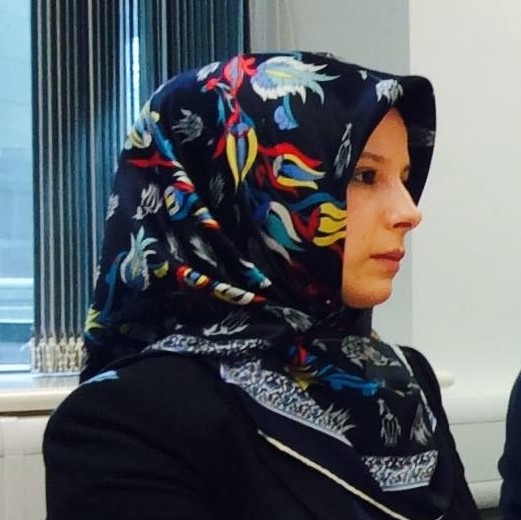
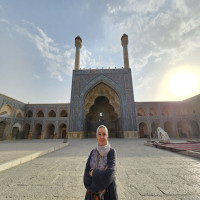
Field Editors




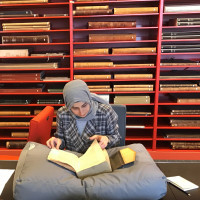

İlk ve orta tahsilini Bandırma'da tamamladı.1996'da Bandırma İmam Hatip Lisesi'nden mezun oldu ve aynı yıl Uludağ Üniversitesi İlahiyat Fakültesi'ne girdi. 2001 yılında mezun oldu. Mart-Aralık 2002 tarihleri arasında Şanlıurfa'da Din Kültürü ve Ahlak Bilgisi öğretmenliği yaptı. Aralık 2002'de Uludağ Üniversitesi İlahiyat Fakültesi'ne İslam Mezhepleri Tarihi araştırma görevlisi olarak atandı. 2005'te Makâlât Geleneğinde İmam Eş'arî adlı teziyle yüksek lisansını, 2015’te de İslam Literatüründe İtikadi Fırka Tasnifleri başlıklı teziyle doktorasını tamamladı. Mart 2020 itibariyle doçent ünvanı aldı. 19 Mart 2015 tarihinden itibaren Kocaeli Üniversitesi İlahiyat Fakültesi’nde Temel İslam Bilimleri Bölümü Kelam ve İtikadi İslam Mezhepleri Anabilim Dalı’nda Öğretim Üyesi olarak görev yapmaktadır. Evli ve iki çocuk sahibidir. Arapça ve İngilizce bilmektedir.


Advisory Board

Language Editor (English)

Page-Layout Editor
Editors-in-Cheif

Editor
Associate Editors





Field Editors






Language Editor






